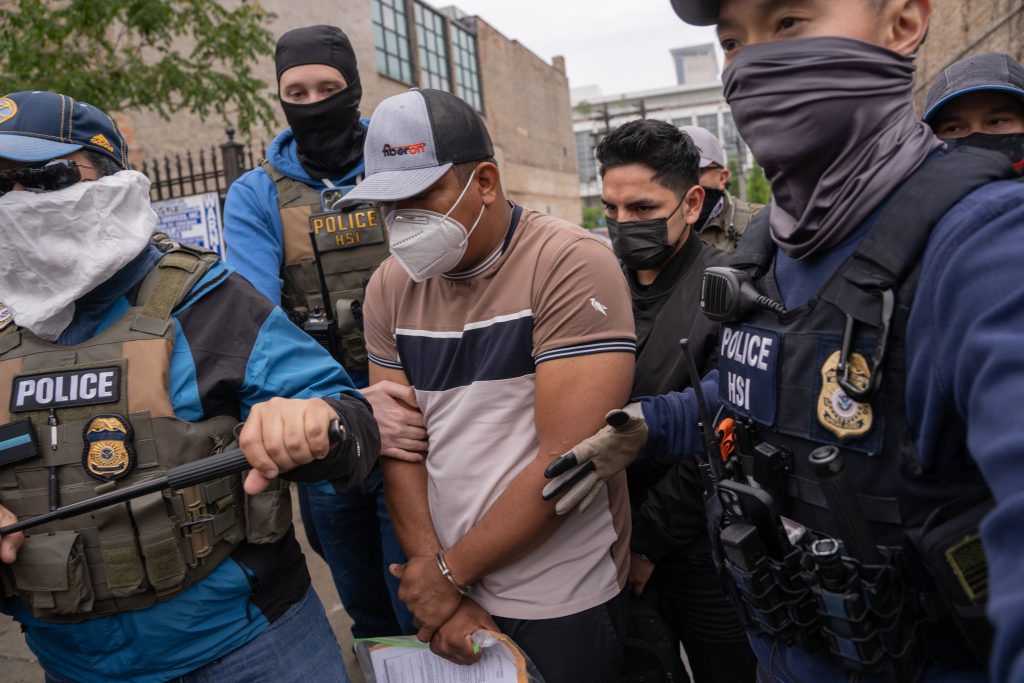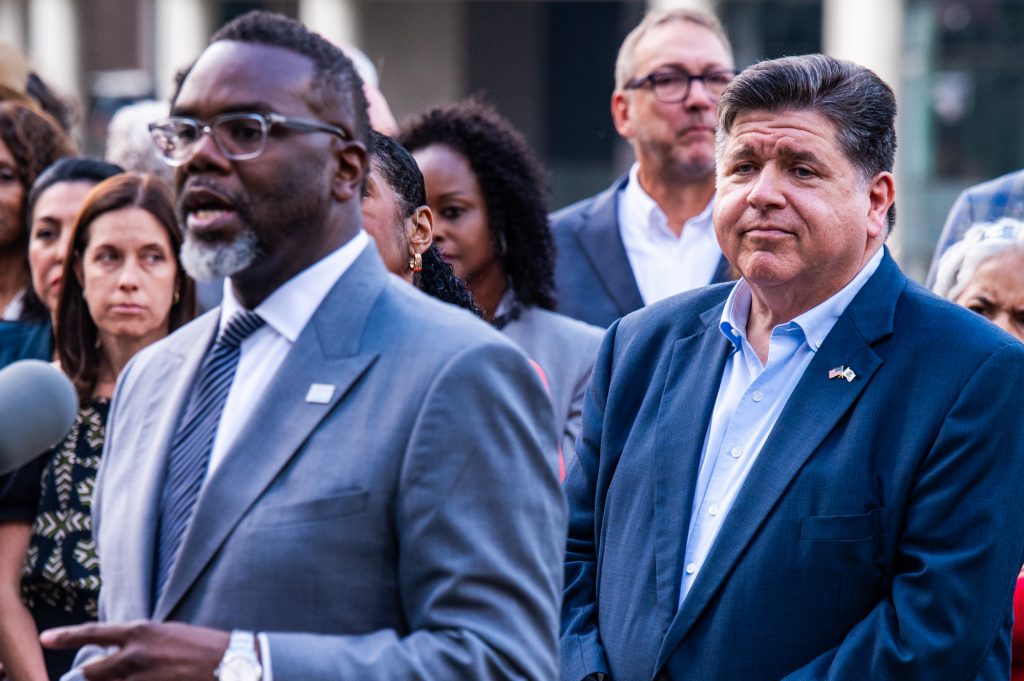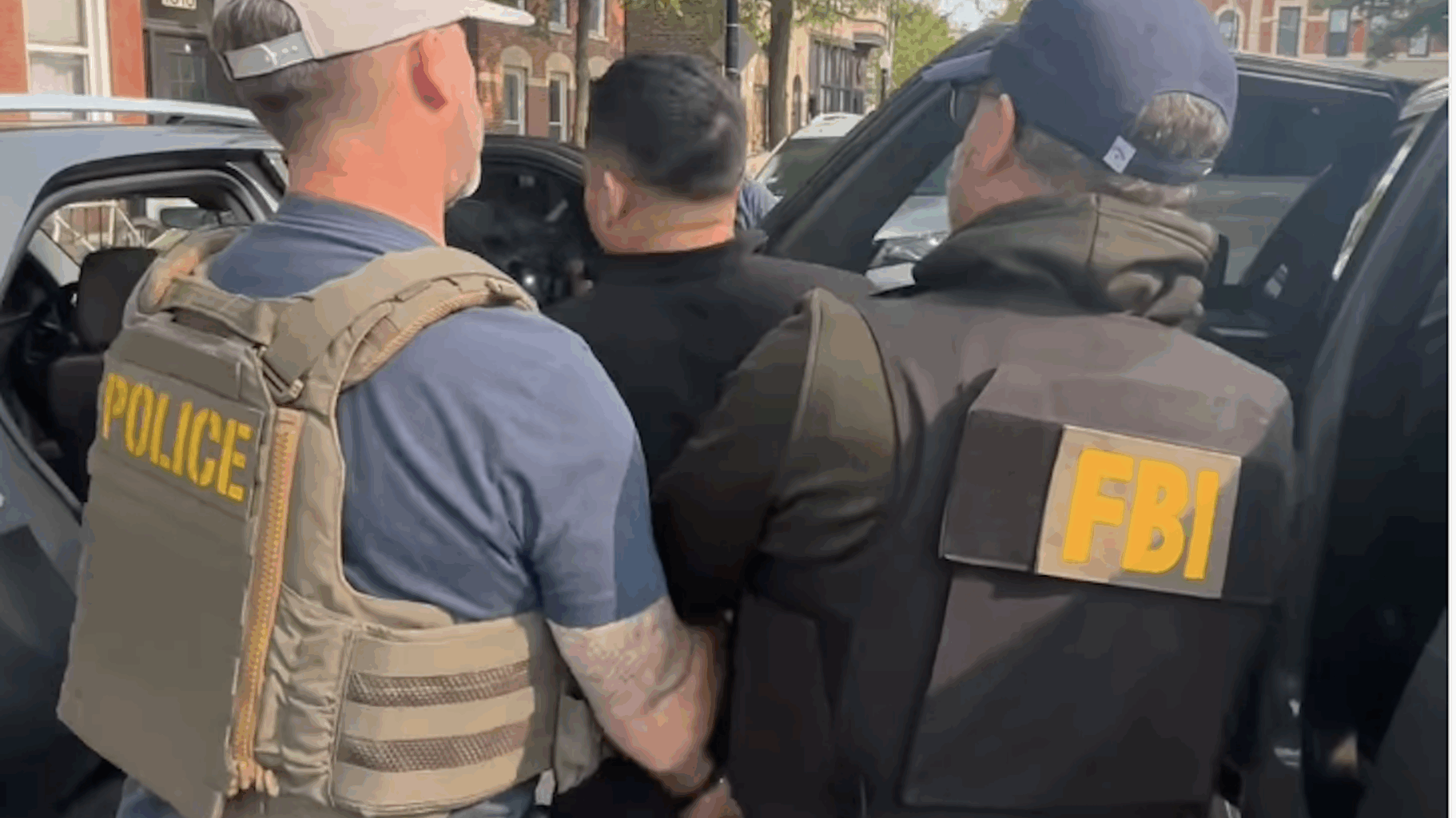CHICAGO — Federal authorities are planning a large-scale immigration enforcement operation in Chicago after Labor Day, government officials announced Thursday.
President Donald Trump’s administration is preparing to send a surge of agents from Immigration and Customs Enforcement (ICE) and Customs and Border Protection to Chicago as early as next week, White House border czar Tom Homan told reporters Thursday in Washington, D.C., according to CNN.
Armored vehicles would also be sent to the city, according to CNN, which also cited anonymous sources familiar with plans that are still in flux.
Homan said a “large contingent” of ICE agents would be sent to Chicago, and Department of Homeland Security Kristi Noem told NewsNation that an ICE tactical “strike team” would be among the officers deployed locally, according to the outlet.
Homan told NewsNation that the operation will use the U.S. Naval Station Great Lakes in north suburban North Chicago as a hub for arriving agents — but he would not specify how many would be sent.
A source with knowledge of the plans told Block Club that National Guard troops would stay at the naval base for the next month.
The immigration plan is separate from recent threats floated by Trump to deploy the National Guard in Chicago as a crime-fighting tactic. But the National Guard would be used for peacekeeping in Chicago if the immigration blitz leads to protests like those in Los Angeles in June, according to CNN.
The two plans in the works represent Trump’s latest escalation in his conflict with Democratic-led cities, which he’s routinely slammed for crime issues and sanctuary policies limiting cooperation with federal deportation efforts.
 Federal agents force people back as they detain several people at the Intensive Supervision Appearance Program office, 2245 S. Michigan Ave., in South Loop on June 4, 2025. Credit: Sebastián Hidalgo for Block Club Chicago
Federal agents force people back as they detain several people at the Intensive Supervision Appearance Program office, 2245 S. Michigan Ave., in South Loop on June 4, 2025. Credit: Sebastián Hidalgo for Block Club Chicago
City officials on Thursday said they were preparing for an influx of federal agents in the city, even if the White House has not communicated with local leaders about its plans.
“[T]e key here is to … to have some type of communication so that nothing gets out of hand, nothing gets out of control and we maintain peace in our city,” Chicago police Supt. Larry Snelling said. “Until we have some concrete information about what’s coming out of the White House, what’s coming out of D.C., around agents and the possibility of the National Guard coming here, we don’t have much to report.”
Democratic leaders from the city and state looked to present a united front at a press conference outside Trump Tower Downtown on Monday.
“Mr. President, do not come to Chicago,” Gov. JB Pritzker said. “You are neither wanted here nor needed here.”
Latino leaders and prominent immigrant advocacy groups have also condemned a looming deployment of federal troops, warning immigrant Chicagoans to be prepared.
Ere Rendon, vice president of immigrant justice with the Resurrection Project, said although it’s still uncertain exactly what another wave of immigration enforcement will look like, the organization is preparing as best it can.
“We’ve been paying close attention to what has happened in Los Angeles and Washington, D.C., with Los Angeles being more in line with what we’re expecting,” Rendon said.
Chicago and Illinois have been seeing consistent levels of high ICE activity since earlier this year, but the activity has been less public over the past several months, Rendon said. That could change with the new wave of enforcement expected next week, she said.
Rendon urged people to learn and exercise their rights during any interaction with ICE agents and alert local response networks when they can. She also cautioned against sharing unverified information, and said most immigrant advocacy groups are only sharing vetted reports of ICE officials.
Veronica Castro, deputy director with the Illinois Coalition for Immigrant and Refugee Rights, said at a press conference Wednesday that Chicago’s immigrant advocacy community has been working to educate people through Know Your Rights Workshops, rapid response teams to notify neighbors of any ICE sightings and an expanded hotline network to connect residents with legal support.
“We know Trump and his loyalists are going to continue targeting Chicago and Illinois, and we also know that we will continue looking out for one another,” Castro said. “We keep us safe.”
 Gov. JB Pritzker looks on while Mayor Brandon Johnson speaks during a press conference in response to President Trump’s threats to deploy military in Chicago on Aug. 25, 2025. Credit: Colin Boyle/Block Club Chicago
Gov. JB Pritzker looks on while Mayor Brandon Johnson speaks during a press conference in response to President Trump’s threats to deploy military in Chicago on Aug. 25, 2025. Credit: Colin Boyle/Block Club Chicago
A protest against Trump and his threats to bring federal agents to Chicago, organized by city labor unions, is planned for Monday.
Chicago was one of the first cities targeted for an immigration mission when Trump took office in January, with federal agents making “collateral arrests” of undocumented people who were not targets and creating a chilling atmosphere that led some to stay home from school or their jobs.
But Homan bemoaned that immigration advocates in Chicago were “making it very difficult” to arrest people. Chicago Supt. Larry Snelling said the arrests exceeded 100 people in the city and suburbs. ICE has yet to release arrest records or totals from the January sweep in Chicago.
Tensions sparked again in June when City Council members and community members clashed with ICE agents as they arrested at least 10 people who were told to check in to a federal immigration monitoring program run out of the South Loop.
Block Club’s Melody Mercado contributed to this report.
Listen to the Block Club Chicago podcast:

